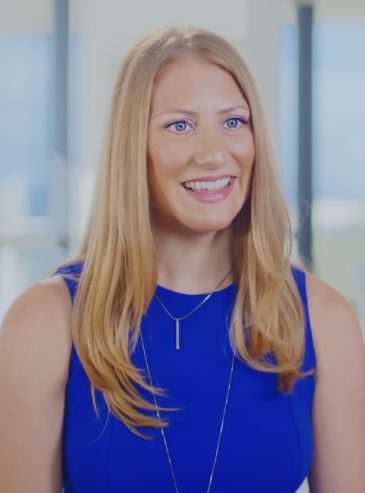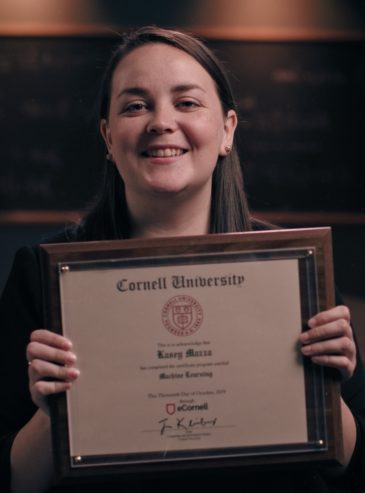
The path to a legal solution travels many roads and can often take a detour depending on the information lawyers uncover as they search for answers. Whether you’re a paralegal, law clerk, or business leader, this certificate program from Cornell Law School will help you explore strategies and resources that lawyers use to find law and legal precedent and identify how they apply that information to find solutions for their clients.
Cornell Law School Professor Kim Nayyer will guide you as you discover legal resources that even nonlawyers can access in libraries or online, for free, including a template for developing a research strategy. You will also explore how lawyers across practice areas use specialized knowledge management systems, tools, and artificial intelligence products in their quest for legal solutions.
By the end of the program, you will be able to see a legal question from a lawyer’s perspective, understand how they develop a strategy for approaching legal research, and determine the best resources for the specific legal information a lawyer needs.
The courses in this certificate program are required to be completed in the order that they appear.
What is legal research all about? There are more steps than you may think, and in this course you will discover all of them. You will explore how the skills of legal research and legal analysis fit into every lawyer's work. You'll then examine the particular features of legal information that make it unique and applicable in specific legal situations, including legal jurisdictions and the implications of where legal information originates.
By exploring terminology specific to legal information, such as primary sources of legal information or legal authority and secondary legal information, you will identify how these kinds of legal information relate to each other. You'll also consider how a lawyer would choose to use different information sources and why. Through this knowledge, you'll be able to understand the valuable skill of strategizing legal research as well as the way lawyers develop efficient legal research strategies to achieve accurate results while staying within timelines and budgets.
- Oct 8, 2025
- Dec 31, 2025
- Mar 25, 2026
- Jun 17, 2026
The world is filled with misinformation, making it difficult to determine what is useful and what isn't. In this course, you will develop skills to help you assess what is valuable legal information. You'll examine how to find credible, reliable legal resources, even on the open web, and you'll develop skills to recognize certain hallmarks of reliable, authoritative information. You'll also discover ways to distinguish these viable sources from lower-quality information and identify the unique advantages of specialized legal research databases.
Throughout this course, you will gain a deeper understanding of the influence that artificial intelligence has on legal information by analyzing specific sources that are useful in explaining legal terminology and discussing legal subjects for court rulings and legislation. You'll also explore the ways that lawyers and researchers can safely use knowledge management systems while recognizing their limitations, and you'll consider the unique advantages of subscription legal resources that lawyers often use.
You are required to have completed the following courses or have equivalent experience before taking this course:
- Creating a Legal Research Strategy
- Jul 30, 2025
- Oct 22, 2025
- Jan 14, 2026
- Apr 8, 2026
Legal research often begins by taking a step back. Lawyers know it's important to not rush in but to first identify the specific question they need to address before gathering the relevant information. In this course, you will explore the specific strategies and processes a lawyer uses to solve legal problems in practice. By studying the ways in which a lawyer leverages their legal expertise to identify the facts salient to a client's problem, you'll discover how the lawyer is able to identify specific legal issues that emerge, along with which steps to take.
You will also examine the preliminary information a lawyer will establish before beginning their legal research, and you'll have the opportunity to see and use a legal research planning tool. You'll investigate how a lawyer can ensure that they're not missing important issues or sources of legal information while they navigate large, complex webs of legal information efficiently and without repetition. Finally, you'll delve into how a lawyer concludes the research process for a given problem.
You are required to have completed the following courses or have equivalent experience before taking this course:
- Creating a Legal Research Strategy
- Selecting Legal Research Sources
- Aug 13, 2025
- Nov 5, 2025
- Jan 28, 2026
- Apr 22, 2026

eCornell was truly one of the best investments I made in my entire career and it’s what brought me to where I am now.
eCornell was truly one of the best investments I made in my entire career and it’s what brought me to where I am now.

What I wanted was something that had an exceptional caliber of professionals and professors, and eCornell actually gave me that.
What I wanted was something that had an exceptional caliber of professionals and professors, and eCornell actually gave me that.
- View slide #1
- View slide #2
- View slide #3
- View slide #4
- View slide #5
top Minds
100% Online
that fit your life and career.
career



